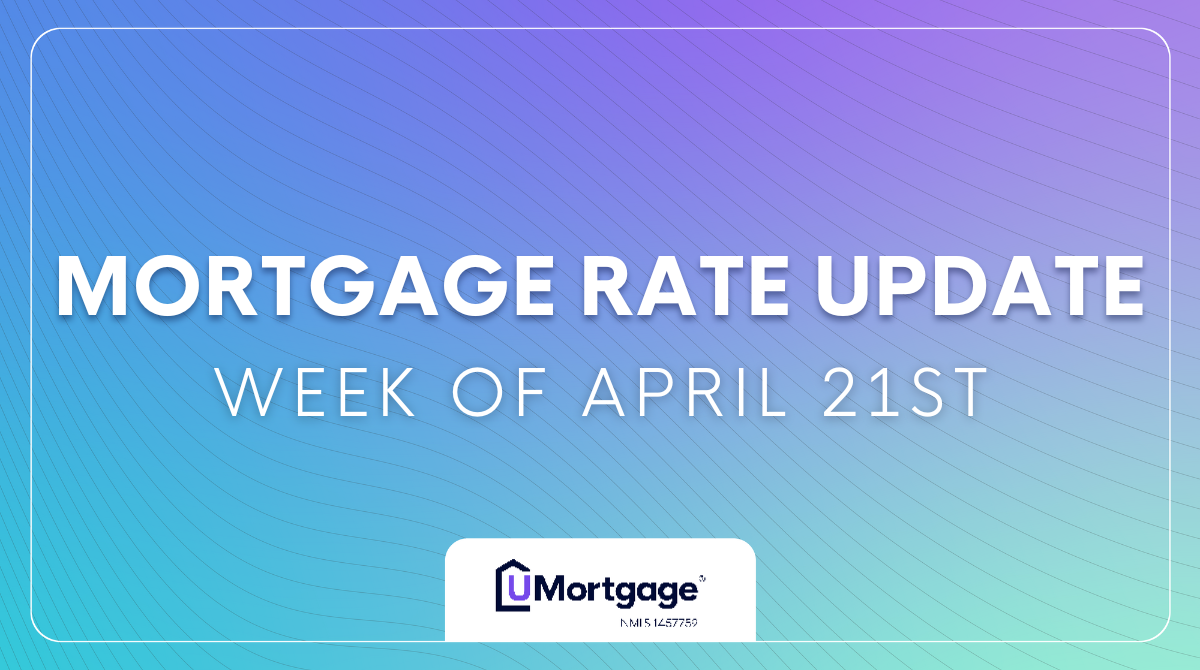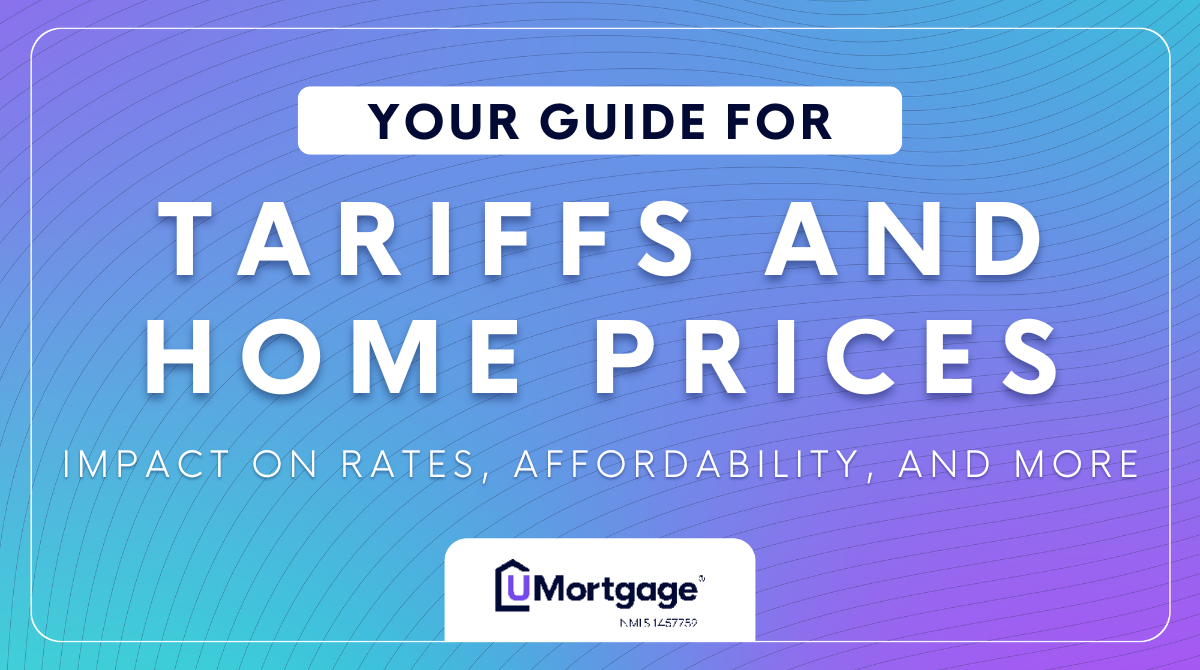March 11, 2025
How Tariffs Could Affect Mortgage Rates & Housing Affordability
Last Updated: March 25th at 2:31pm ET
On March 4th, President Donald Trump announced new tariffs, imposing a 25% duty on nearly all imports from Mexico and Canada and increasing tariffs on Chinese imports to 20%.
While tariffs on items protected by the United States–Mexico–Canada Agreement (USMCA) have been delayed until April, understanding their potential impact on the homebuying process could help you avoid unexpected costs when purchasing a home or helping your client buy their home.
Many economists believe that these tariffs will have a noticeable impact throughout the housing economy, including housing costs and mortgage interest rates. While these changes could affect home prices and mortgage rates, understanding their impact can help you make informed homebuying decisions and ensure that you’re taking the most affordable route possible to buy a home.
Why is President Donald Trump Imposing Tariffs on Canada, China, and Mexico?
The Trump administration has cited several reasons for these tariffs, including boosting U.S. manufacturing, addressing trade imbalances, and increasing revenue for the U.S. Treasury.
Increase U.S. Manufacturing: Trump has cited his primary reason for imposing these tariffs as bringing more business manufacturing back to the U.S. In his address to Congress, he said, “If you don’t make your product in America… you will pay a tariff, and in some cases, a rather large one.”
Balance the Budget: Contrary to common belief, tariffs are paid by American companies importing goods, not by foreign governments. These payments go to the Federal Reserve and would help reduce the national deficit.
Prevent Flow of Illicit Drugs into the U.S.: Trump has referenced the illicit flow of fentanyl into America as a reason for tariffs on its North American neighbors and China.
How Tariffs Will Impact Home Prices & Construction Costs
Home builders heavily rely on imported goods like building materials and appliances to minimize building costs. Here’s how these tariffs will impact homebuilders and subsequently homebuyers looking to build a home.
Homebuilders Rely on Imported Goods
A recent report by John Burns Real Estate Consulting (JBREC) showed that homebuilders import 31% of sawmill wood products, with 73% of those imported products coming from Canada. Builders also import 73% of small appliances for new homes, with 67% of those imports coming from China.
The 25% tariff on goods imported from Canada & Mexico and 20% tariff on goods from China will directly impact the cost of timber, steel, aluminum, small & large household appliances, and building hardware.
Trump’s Plan to Offset These Costs
To help offset rising costs, the administration has taken steps to increase domestic timber production, including an executive order aimed at expanding logging operations.
On Saturday, March 1st, Trump signed an executive order focused on the immediate expansion of American timber production. It directly cited increased forest management, wildfire risk reduction, and reduced regulations that might slow down timber production.
As of March 6th, there have been no additional announcements regarding domestic production of other building materials.
Will Tariffs Affect Mortgage Interest Rates?
The implementation of tariffs on imported goods will have greater economic impacts than the cost to build a home. This can be seen directly through volatility in the stock market as Trump proposes and delays tariffs against China, Canada, and Mexico.
Slower Economy Leads to Lower Mortgage Rates
Tariffs can create uncertainty in the stock market. When stocks become volatile, investors often shift money into U.S. Treasury bonds, causing bond yields to drop. Since mortgage rates tend to follow the 10-year Treasury yield, this could lead to lower borrowing costs.
Risk of Increased Inflation
While tariffs might help lower mortgage rates by slowing consumer spending, they can also contribute to inflation by increasing the cost of goods. The Federal Reserve closely monitors inflation trends when setting interest rate policies.
During a Q&A session at an economic forum on March 7th, Jerome Powell, Federal Reserve Chair, said, "In a simple case where we know it's a one-time (price hike), the textbook would say look through it," when asked if tariffs would have inflationary effects.
"Uncertainty around the changes and their likely effects remains high," continued Powell. "As we parse the incoming information, we are focused on separating the signal from the noise. As the outlook evolves, we do not need to be in a hurry, and we are well positioned to wait for great clarity."
How Homebuyers Should React to Tariffs
While tariffs will have an impact on the cost to buy a new home, there are plenty of things that homebuyers can do to protect themselves from inflation and grow their financial portfolio.
Buy When You’re Ready
Rather than trying to time mortgage rate changes, it's often best to buy when you're financially prepared. Mortgage rates are volatile; they can gradually increase and decrease every day. Home prices fluctuate too, but when you look at the average price of houses sold in the U.S. over the last decade and beyond, the lines largely just go up.
Graph displaying average sales price of new homes, average sales price of all homes sold, and median sales price of all homes sold in the U.S. dating back to 1960.
Historically, real estate is one of the safest investments you could make. Beyond the price of your home appreciating over time, you’ll also have stable monthly mortgage payments, receive several tax benefits that will help lower your tax bill, and earn equity with every mortgage payment that can be leveraged in the future.
Consider Existing Homes on the Market Instead of New Builds
As building costs increase, it might make more sense to consider homes that have already been built and lived in. In many cases, they’re more affordable than new builds and offer more negotiation power when it comes to price, closing costs, and repairs.
Considering things like construction delays and building codes, you can typically move into an existing home sooner—typically within 30-60 days after closing.
And of course, we have to mention the unique charm that comes with older homes. Touches of craftsmanship like crown molding, hardwood floors, and intricate stone & ironwork add plenty of personality to a home that’s much more expensive to replicate in a new build.
Work With Mortgage & Real Estate Professionals You Trust
As always, the best way to protect and grow your financial health through homeownership is to work with mortgage & real estate professionals you trust. A UMortgage Loan Originator will walk you through all your loan options, shop rates with you, and, after you’ve closed on your mortgage, help you continue to leverage the wealth-building benefits of homeownership.
If you’re ready to start exploring your pathway to homeownership or are curious how you can leverage the equity you’ve built through the home you own, fill out this form to find a UMortgage Loan Originator near you!
 Read More
Read More



